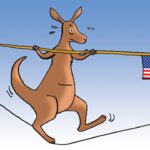The list of Canadian politicians who have joined the campaign to release Huawei executive Meng Wanzhou continues to grow. According to Canadian media reports, two Canadian members of parliament, the New Democratic Party’s Niki Ashton and the Green Party’s Paul Manly, are set to speak at an online panel discussion calling for the release of Meng on Tuesday.
This is not the first time that Canadian politicians have made similar calls to their government on the issue. In late June, a group of prominent figures, including former parliamentarians and senior diplomats, implored in a letter Canadian Prime Minister Justin Trudeau to end Meng’s extradition proceedings.
The Trump administration, in its relentless effort to suppress and strangle Huawei, wants Canada to extradite Meng to the US. At the behest of the US government, Trudeau’s government ordered Meng arrested while she was transferring planes at the Vancouver airport in December 2018. Since then, China-Canada bilateral ties have worsened to a historical low.
It seems that more and more Canadian politicians are looking to Trudeau’s government to improve relations with China. Such a development, to a certain extent, shows that there are voices in Canada that still value the China-Canada relationship.
Past decades have seen both countries achieve tremendous progress in many aspects of their bilateral relationship, with extensive cooperation carried out in many areas. Economically speaking, China has become Canada’s second largest trading partner after the US.
It is essential for Canada to ease tensions with China to gain more economic development opportunities. For a Canadian economy that has been hit hard by the coronavirus pandemic, a more favorable trade environment is an indisputably necessary part of its recovery; the country must make concrete efforts to reduce points of friction with its major trading partners, including but not limited to the intense scrutiny over Chinese investment proposals in Canada.
Of course, there is no denying that the US, as Canada’s largest trading partner, still has a great influence over Canada, which is why the latter has no trump card when it comes to handling its trade disputes with the US.
For example, in August the Canadian government announced a tariff on US aluminum products in retaliation to the tariff imposed by the Trump administration on some Canadian aluminum products. Yet, since Canada relies on the US for most of its daily necessities, the Canadian move was more like a gesture that will have little impact on the US side. It is Canada’s heavy economic and political dependence on the US that creates a need for Ottawa to seek more diversified trading partners and build a more balanced trade network.
Now the US is at a critical juncture, with president-elect Joe Biden set to take office in two months. How to revive the US economy in the post-pandemic era is going to be a daunting challenge for him, and it remains to be seen whether the next administration’s economic and trade strategy will create new uncertainties for trade between the US and Canada.
If Canada’s economic and trade cooperation with China can move to a relatively stable point in time of great turbulence, then sound China ties may give its government more flexibility in handling its trade issues with the US.
Global Times



